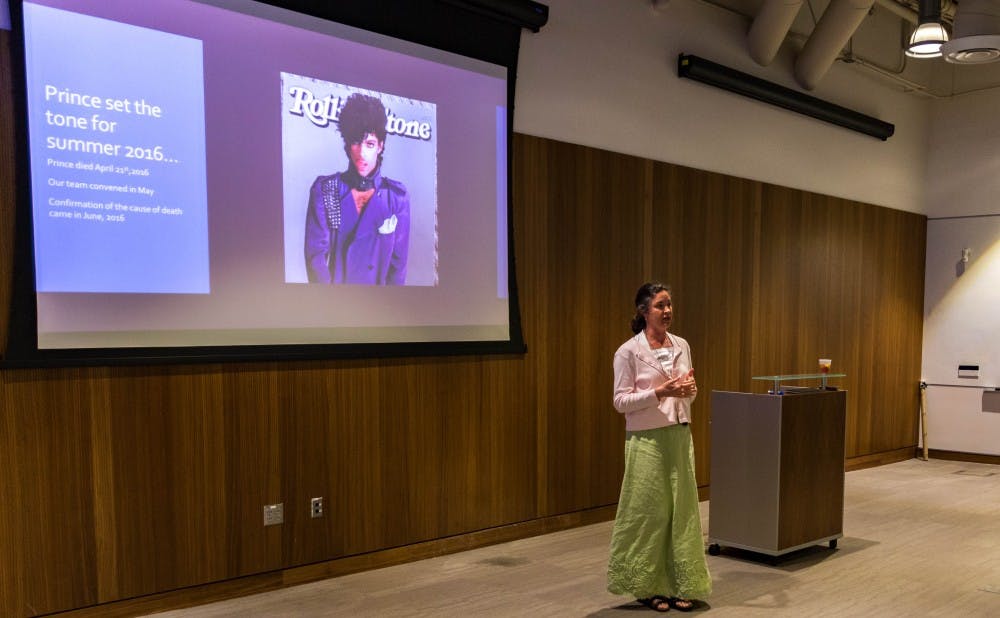Approximately three people in North Carolina die each day from opioid overdoses, and a Bass Connections team is brainstorming solutions to stop this alarming trend.
Nicole Schramm-Sapyta, an assistant professor of the practice in the Institute for Brain Science, is one of the faculty leaders of the "Opiate Outreach" Bass Connections team. During a Tuesday presentation, she discussed some of the major themes of the team's work. These included improving access to community support resources and to naloxone, a drug designed to block opioid overdoses.
“The goal of community programs should be to recognize the importance of empathetic care and to fully consider an individual’s mental health,” Schramm-Saptya said.
Her research team has worked with treatment facilities and response teams to develop effective treatment resources for addicted individuals. They have also encouraged law enforcement officers and emergency departments to carry naloxone at all times for patient treatment.
“The default used to be to take them to jail,” Schramm-Saptya said. “Now more community response teams are stressing first getting individuals off the streets and ensuring their safety, then directing them to crisis centers and only bringing them to jail if they are demonstrating violent behavior.”
Students reached out to Durham Police Chief Cerelyn Davis, asking her to urge officers in the area to carry naloxone. They sent a letter to DPD co-signed by 11 treatment centers and community groups in Durham—but Schramm-Saptya said they received no response.
The group also assembled 624 Naloxone kits to distribute around Durham, even reaching out to the Duke Emergency Department.
Increasing awareness was also a priority, and the team developed resource cards with contact information for opioid treatment facilities across North Carolina. Promoting awareness has comprised the bulk of the research done so far, Schramm-Saptya explained.
Opioid-related deaths are typically highest in rural and coastal regions of North Carolina, and the opiate problem is a true epidemic because drugs are “transmitted” socially from person to person. Schramm-Saptya added that the high demand for heroin and prescription pills leads to a lack of awareness about how threatening these drugs are.
The group's next step is to analyze 911 call responses to understand how crisis centers can better function and improve response rates.
“We want to prevent prescription pill misuse, opioid addiction and death due to overdose in North Carolina through this project,” Schramm-Saptya said.
Get The Chronicle straight to your inbox
Signup for our weekly newsletter. Cancel at any time.

